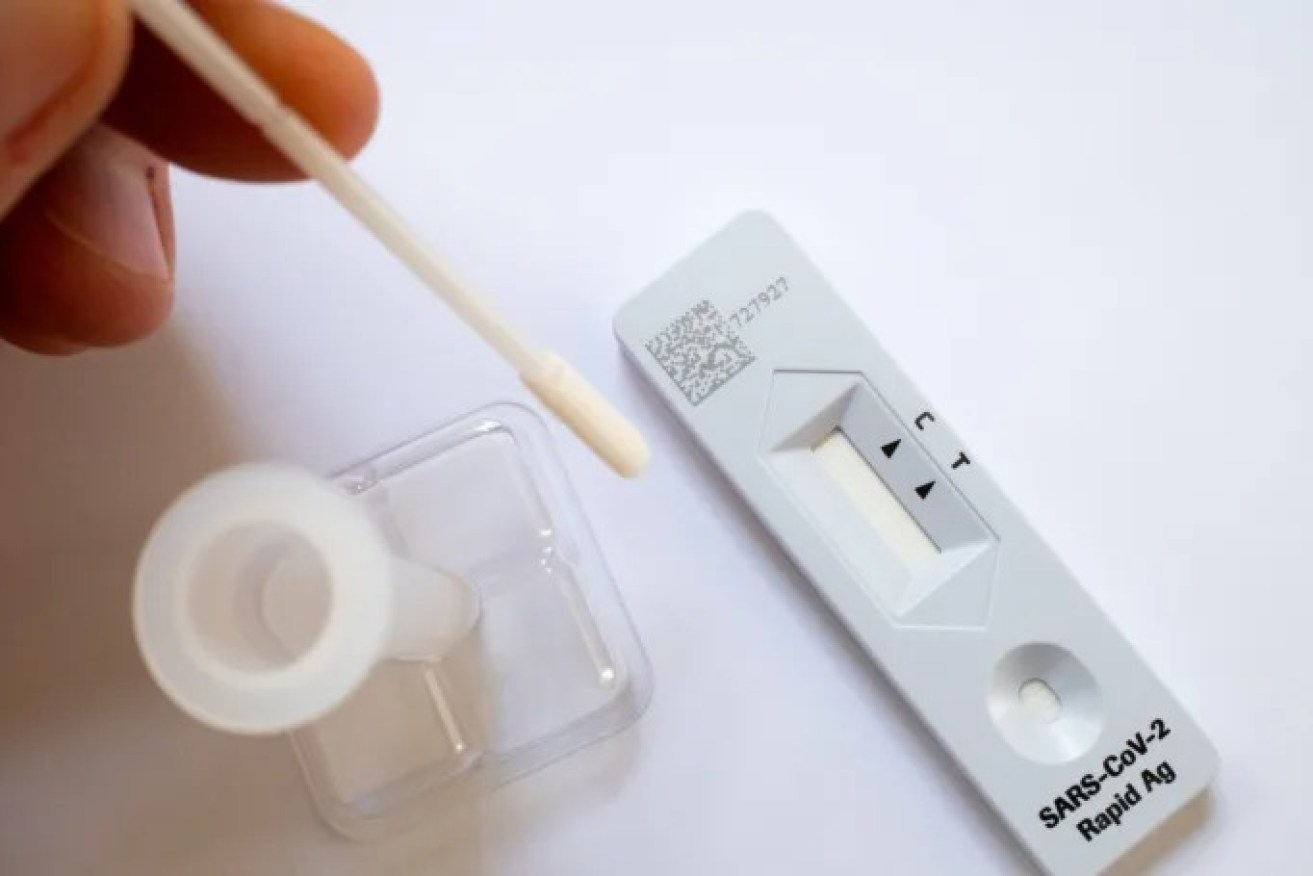COVID cases almost double in a week ahead of Christmas peak
COVID-19 cases in South Australia have almost doubled in a week, with Premier Peter Malinauskas saying the spike is “largely in line” with what modellers predicted ahead of a forecast peak early next month.

Photo: Lukas Coch/AAP
SA Health’s weekly COVID-19 update, released this afternoon, shows over the past seven days there have been 6867 new reported infections – an 80 per cent jump from the 3797 new cases recorded last week.
There are now 2333 more active infections in the state compared to last week, with 83 people with COVID-19 in hospital, including seven in intensive care and two on a ventilator.
The state’s COVID death toll has risen to 1058, with SA Health reporting seven new notified deaths over the past week, including two people aged under 70.
Latest genome sequence testing found 74.5 per cent of samples analysed were BA.5. There has also been a spike in new variants including B.Q.1 and XBB.
Modelling from the University of Adelaide predicts this latest COVID wave will peak on December 6 followed by a peak in hospitalisations on December 20.
Premier Peter Malinauskas said the spike in cases was “largely in line with what we expected to occur at this time of the year”.
He said the government was not currently considering reintroducing restrictions, but would “act on the advice we receive”.
“We are in a different phase,” he said.
“We’re also in a different position to be able to handle growing case numbers through vaccines, the fact the majority of South Australians have already had COVID, but also the use of anti-virals.”

Weekly COVID-19 cases for the last 12 months. Graph: SA Health
University of South Australia epidemiologist Professor Adrian Esterman told InDaily it was difficult to project how many more COVID cases the state would record.
“The reason is we’ve got this big mix of subvariants across Australia… and judging what percentage is in South Australia and for each of those just how much they can invade our immune system is almost impossible,” he said.
“On top of that we’ve got this big mish-mosh of immunity status in the population – some people have had no doses (of COVID-19 vaccine), some two, some three, some four, some five even and trying to model that is very difficult.
“Anyone who tries to model what’s going to happen is very brave.”
Esterman said countries which have already gone through the current wave, including Singapore and France, did not see a massive spike in hospitalisations.
“In fact, they’ve seen fewer hospitalisations compared to BA.5,” he said.
“In both those countries, the new wave was very short and not as high as BA.5.
“But, of course, there’s no guarantee that in Australia we’ll see the same pattern.
“For the moment, we’re just at the start of a very steep rise in case numbers.”
Australasian College for Emergency Medicine SA faculty president Dr Michael Edmonds said emergency doctors were concerned about how hospitals would cope during the peak of the current COVID wave.
He said it would be a “wait and see” to determine how much pressure the system would be under.
“We’re concerned the eastern states have started to see an uptick in their COVID cases, which we’d expect to start seeing here over the next couple of weeks, which will put more pressure on our system again,” he said.
“We’ve obviously had quite a bit of practice over the past couple of years at getting things ready – making sure our systems are there so that we can keep our patients and our staff safe.
“We know this is going to be another BA.5 type of wave, so the severity might not be too bad, but it’s hard to predict.”
Malinauskas urged vulnerable and elderly South Australians to get their fourth COVID vaccine and to speak to their doctor about accessing anti-viral medication if they become infected.
“It can be a very, very big determinant about whether or not you end up in hospital,” he said.




